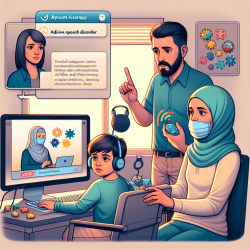Managing patients with multiple chronic conditions, or multimorbidity, is a growing challenge for primary care physicians worldwide. As these conditions become more prevalent, understanding and improving clinical reasoning processes is crucial for providing effective patient care. A recent study titled "Understanding the clinical reasoning processes involved in the management of multimorbidity in an ambulatory setting: study protocol of a stimulated recall research" sheds light on these processes and offers valuable insights for practitioners.
The Importance of Clinical Reasoning
Clinical reasoning is the cognitive process that healthcare professionals use to assess patient information, make decisions, and plan treatments. In the context of multimorbidity, this involves balancing evidence-based care options with patient priorities and quality of life considerations. The study emphasizes that effective clinical reasoning goes beyond diagnosis to include ongoing management and decision-making.
Research Highlights
The study employs a qualitative approach using semi-structured interviews and video-stimulated recall to explore how primary care physicians manage patients with multimorbidity. This method allows researchers to delve into the cognitive processes physicians use during consultations. Key findings include:
- Diverse Clinical Reasoning: Physicians employ a variety of reasoning strategies to address the complex needs of multimorbid patients.
- Importance of Patient-Centered Care: Successful management involves considering patient preferences and life circumstances alongside medical guidelines.
- Need for Enhanced Training: Many physicians feel inadequately trained in managing chronic conditions, highlighting a need for improved educational programs.
Practical Applications
The insights from this research can help practitioners improve their clinical reasoning skills by:
- Engaging in Reflective Practice: Regularly reflect on your decision-making processes and seek feedback from peers to identify areas for improvement.
- Pursuing Continued Education: Participate in workshops and courses focused on managing multimorbidity and enhancing clinical reasoning.
- Cultivating Patient Relationships: Develop strong communication skills to better understand patient needs and preferences.
The study also underscores the importance of integrating these findings into medical education curricula to better prepare future physicians for the complexities of multimorbidity management.
The Path Forward
This research provides a foundation for further exploration into clinical reasoning processes. By understanding how these processes function in practice, healthcare providers can enhance their ability to deliver high-quality care to patients with multiple chronic conditions. Practitioners are encouraged to engage with this research and consider how its findings can be applied to their own practice.
If you're interested in delving deeper into this topic, I highly recommend reading the original research paper: Understanding the clinical reasoning processes involved in the management of multimorbidity in an ambulatory setting: study protocol of a stimulated recall research.










